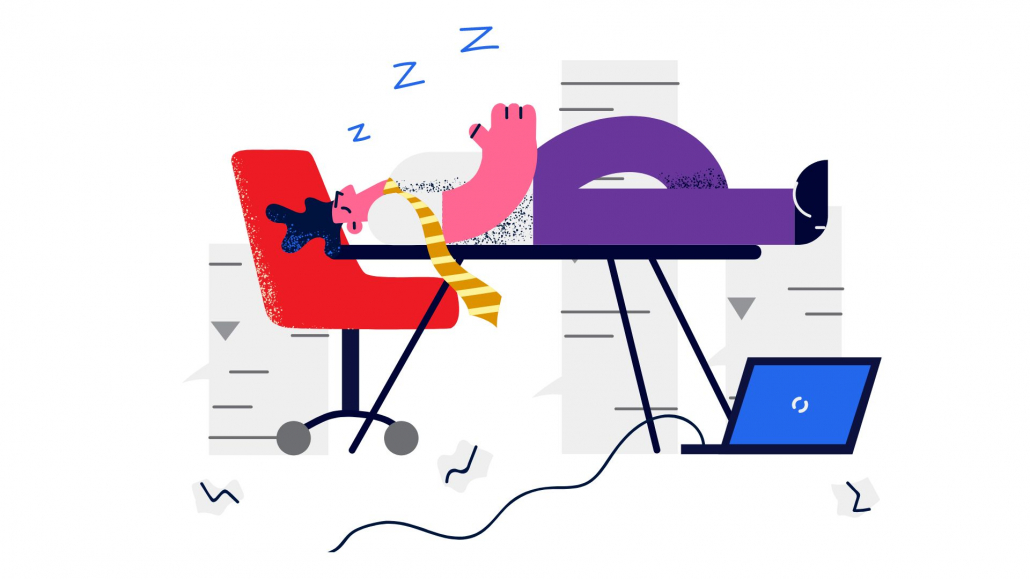What is Really at the Root of Our Procrastination?
It is safe to say that most of us are quite familiar with what it means to procrastinate. No matter who you are, whether a student, professor, or CEO, chances are that you have procrastinated at some point in your life. You say it will “never happen again.” That it is the “last time” and that you have “learned from your lesson.” Yet as the weeks, months, or even years go by, you find yourself falling back into the same pattern of delaying your work to the very last minute.
So, why do we even procrastinate in the first place? In this article, we will dive into this undesired tendency, explaining its roots, and posing some ways to help overcome it.

Procrastination
According to the article Procrastination: When Good Things Don’t Come to Those Who Wait, procrastination involves postponing a task and can have negative effects on well-being.
While the reason for procrastination differs per individual and situation, there is a psychology behind why we as humans have a tendency to delay responsibilities. As opposed to the common belief that procrastination is linked to laziness or a lack of time management skills, research shows that procrastination is associated with the negative feelings a task may evoke in us such as stress and frustration. Having to do with aversion, a research study explains how we procrastinate as a way to avoid dealing with negative feelings, such as insecurity, self-doubt, and boredom. The psychological phenomenon known as the present bias reveals that we gravitate towards the pleasure or enjoyment of the present moment taking precedence over our long-term desires or goals. This phenomenon is presented in research explored by Dr. Hal Hershfield, a scholar and professor at UCLA.
Nevertheless, there are actions we can take to help combat our tendency to procrastinate.
Can I overcome procrastination?
According to the Princeton University McGraw Center for Teaching and Learning article, Understanding and Overcoming Procrastination, the first step is becoming aware of your procrastination. Once this has been acknowledged, the next step would be self-knowledge, which means turning inward and discovering the reasons for procrastinating. Research has shown that some individuals have found that reasons for procrastination can be rooted in fear, self-doubt, or low self-esteem. Therefore, it makes sense that in addition to learning how to better regulate your emotions, scholars also point to being more self-forgiving and practicing self-compassion, as a strategy that also addresses procrastination.
Quick tips from MindWell Pod Co-Lead, Dr. Nicole Green:
Executive Director of the UCLA Counseling and Psychological Services
Some of these may serve as good places to start from on your journey:
- Reward yourself
- Practice time-telling
- Develop a tolerance for anxiety/frustration
- Go with the motto: “start it!” not “finish it!”
- “Progress” not “Perfection”
- Don’t wait to “feel like it”
- Use small chunks of time
- Expect & account for disruptions and problems
- Identify your most productive time(s) of day
- Enjoy free time!

Other Activities to Address Procrastination
- Based on research above highlighting some of the negative emotions associated with procrastination, as well as the recommendations to acknowledge the underlying emotions of procrastination by the Princeton University McGraw Center for Teaching and Learning, reflecting and journaling on the feelings our tasks evoke could be a good first step for awareness and acknowledgement.
- Carola Grunschel and colleagues evaluated potentially effective trainings for procrastination. One of such trainings involved making plans for distractions that may arise. For example, if a friend calls you in the middle of a project, what do you do? This study suggests that creating a plan could be helpful. For example, calling a friend back after writing one page, rather than picking up immediately, or completing your presentation before replying to a text could be helpful strategies. Obviously this is at one’s discretion and does not apply to emergencies.
- An article in the Harvard Business Review by Chris Bailey leans into this notion of negative emotions and makes suggestions for turning boring actions into games. One fun activity suggested in this article is challenging oneself with the number of words one can churn out in a certain time window. It can be any metric and time period you set for yourself.
- Introducing some friendly competition can also amplify the fun aspect of completing tasks given evidence of the potential benefits of competition for taking on one’s goals. You can reward each other for completing tasks, while making room for self-compassion if needed.
- Given research that points to how our perceptions of our current and future selves interact with our decision making and how present bias may mean that current pleasures take precedence over our long-term desires, perhaps, tying one’s current activity to an immediate pleasure after accomplishing current goals can be helpful. It can be as little as buying yourself a meal, boba tea or even watching an episode of television.
- Lennart Visser and colleagues suggest that focusing on one’s strengths can be beneficial in the short term for addressing procrastination. Their study involved defined steps that included identifying one’s qualities and examining and utilizing them in studying scenarios. In their paper, they discuss reflecting on a study session that went well and identifying the inner qualities that were present at that point.
Additional Readings and Videos:
- Inside the mind of a master procrastinator – TED Talk by Tim Urban
- Put Off Procrastination!! Practical Techniques to Stop Procrastination by the Centre for Clinical Interventions from the Government of Western Australia.
- 5 Research-Based Strategies for Overcoming Procrastination by Chris Bailey on the Harvard Business Review.
- Why procrastination is about managing emotions, not time
- Procrastination – Video from the UNC Learning Center
- Perfectionism, Procrastination, and the Practice of Self-Care
- Tips to Fight Every College Student’s Worst Habit: Procrastination
Other Helpful Tools and Resources:
- Learn how to practice mindfulness or become more aware of positive psychology.
- Seek mental health support from professionals, peers, or a trusted community.
- Receive academic advising.
- Adopt habits to help manage your anxiety or stress.
- Take a course on Personal Brain Management or Mindfulness Theory & Practice.
Written by Marissa Hong and Leona Ofei with tips from Dr. Nicole Green
Marissa Hong recently graduated from UCLA, with a degree in Art. When not blogging for the Mindwell Pod, she is leading tours at the Hammer Museum as a Student Educator. You can also find her on runs around Westwood or watching Schitt’s Creek with a cup of coffee.
Leona Ofei is the MindWell Pod Graduate Student Researcher and a PhD Student at the Fielding School of Public Health at UCLA. She has an MPH from Boston University and a BS in Biology and Society and Communication from Cornell University. Leona is interested in health communication practice, improving physical and mental health literacy, and hopes to contribute to mental health education on the UCLA Campus.
Dr. Nicole Green is the MindWell Pod Co-Leader and Executive Director of the UCLA Counseling and Psychological Services.


